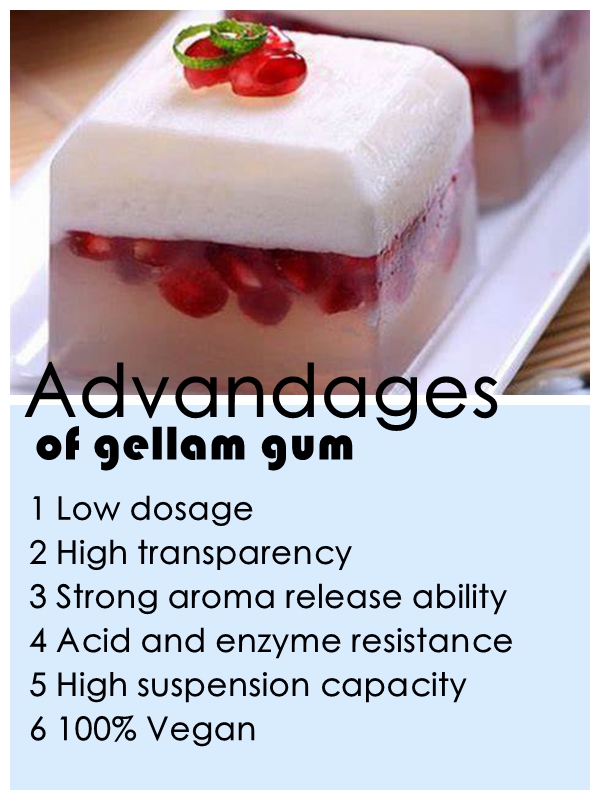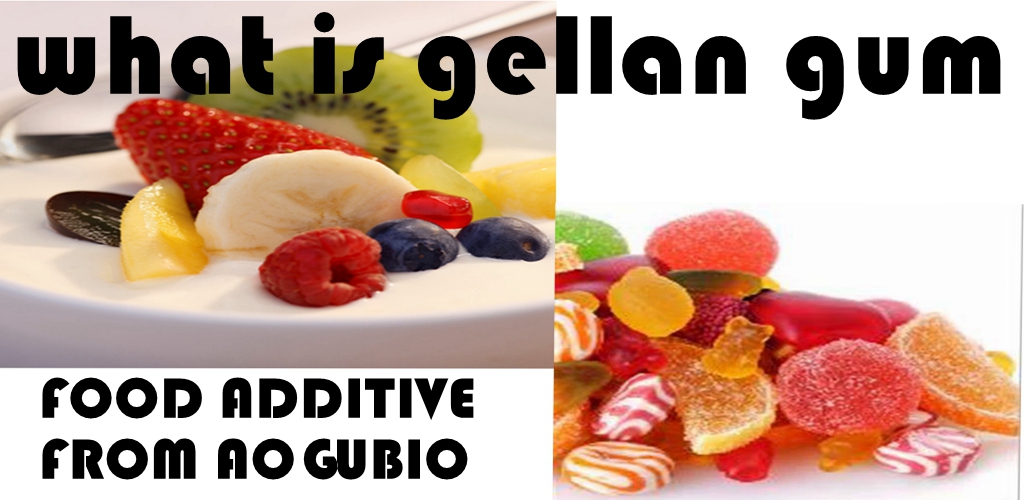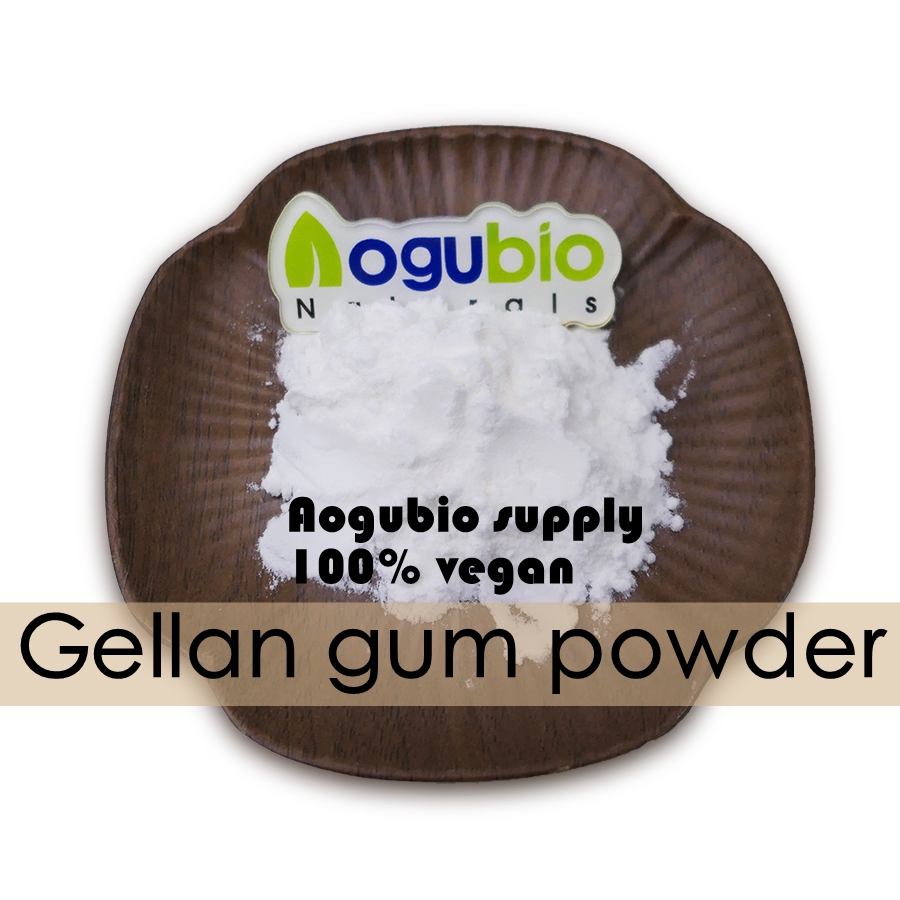Gellan gum is a food additive that was discovered in the 1970s.
First used as a substitute for gelatin and agar agar, it’s currently found in a variety of processed foods, including jams, candy, meats, and fortified plant milks.
Gellan gum is a food additive typically used to bind, stabilize, or texturize processed foods. It’s similar to other gelling agents, including guar gum, carrageenan, agar agar, and xanthan gum.
It grows naturally on water lilies but can be artificially produced by fermenting sugar with a specific strain of bacteria
It’s a popular replacement for other gelling agents because it’s effective in very small amounts and produces a clear gel that isn’t sensitive to heat.
Gellan gum also works as a plant-based alternative to gelatin, which is derived from animal skin, cartilage, or bone.
Aogubio supply 100% vegan gellan gum powder food grade, samples can be request first.

Gellan gum is used as a thickener, binder, and stabilizer in different food applications.
It mainly stabilizes the water-based gels, such as desserts and drinking jellies. Even gellan replaces gelatin in some dairy products, such as yogurt and sour cream in vegan items.
Additionally, it is also used in low-calorie (sugar-free) jams where pectin is not functional, fruit preparations, yogurt, sauces, nonfat salad dressings, and films.
Gellan use is best for reducing the setting time of starch confectionary; it also prevents sticking together of candies when exposed to a warm environment
Safety and potential downsides
Gellan gum is widely considered safe.
While one animal study linked chronic intake of high doses of gellan gum to abnormalities in gut lining, other studies have found no harmful effects. Moreover, in a 3-week study, people ate close to 30 times more gellan gum per day than typically found in a normal diet without experiencing any adverse effects.
That said, because this product may slow digestion in some people, you may wish to limit your intake.
Post time: May-05-2023






